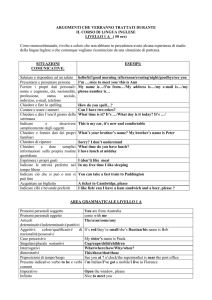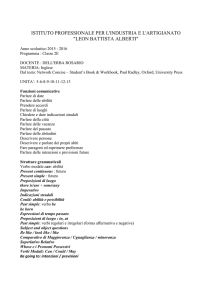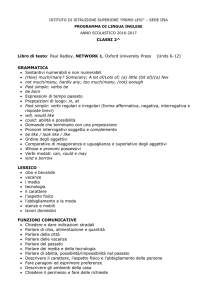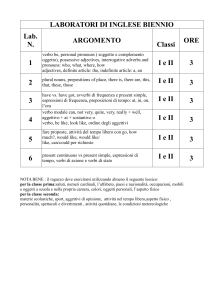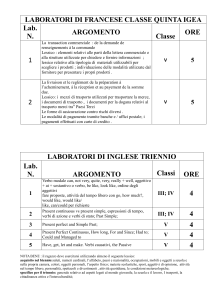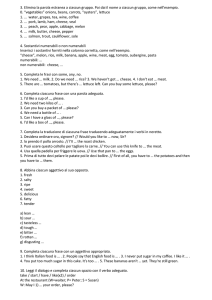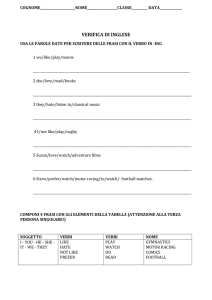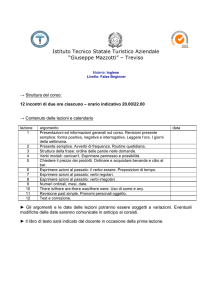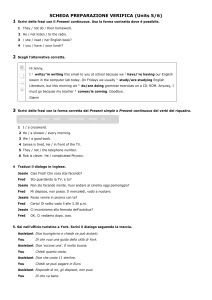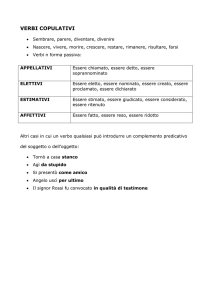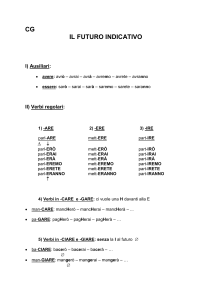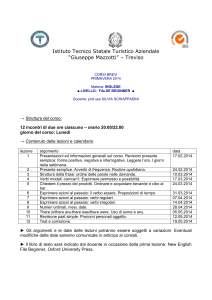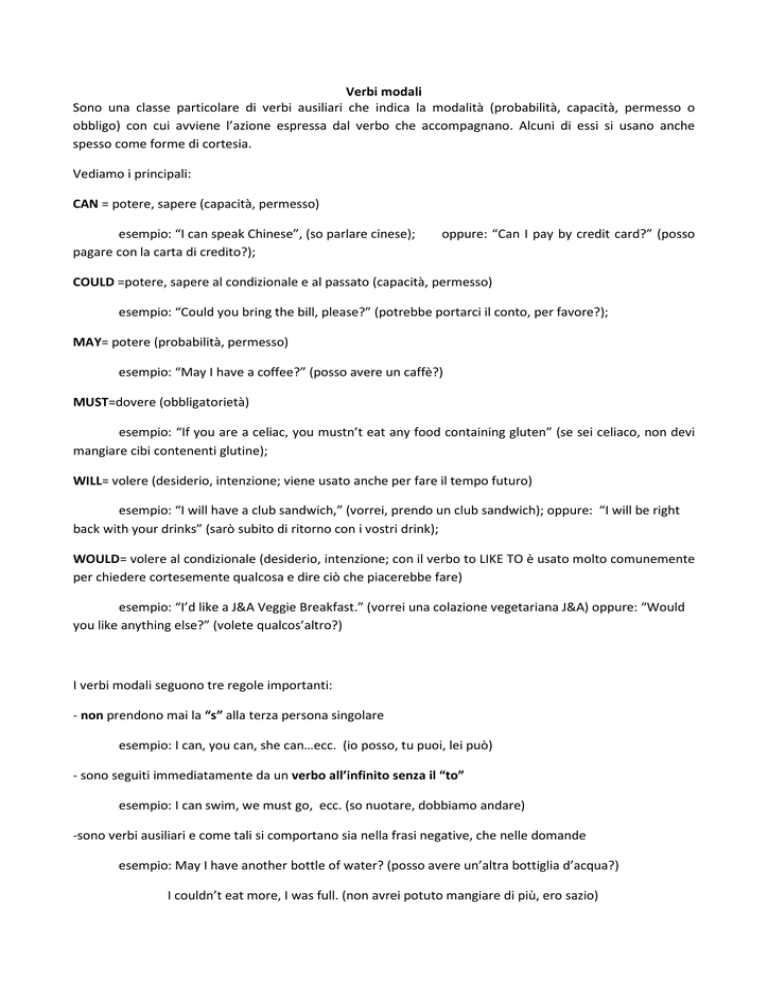
Verbi modali
Sono una classe particolare di verbi ausiliari che indica la modalità (probabilità, capacità, permesso o
obbligo) con cui avviene l’azione espressa dal verbo che accompagnano. Alcuni di essi si usano anche
spesso come forme di cortesia.
Vediamo i principali:
CAN = potere, sapere (capacità, permesso)
esempio: “I can speak Chinese”, (so parlare cinese);
pagare con la carta di credito?);
oppure: “Can I pay by credit card?” (posso
COULD =potere, sapere al condizionale e al passato (capacità, permesso)
esempio: “Could you bring the bill, please?” (potrebbe portarci il conto, per favore?);
MAY= potere (probabilità, permesso)
esempio: “May I have a coffee?” (posso avere un caffè?)
MUST=dovere (obbligatorietà)
esempio: “If you are a celiac, you mustn’t eat any food containing gluten” (se sei celiaco, non devi
mangiare cibi contenenti glutine);
WILL= volere (desiderio, intenzione; viene usato anche per fare il tempo futuro)
esempio: “I will have a club sandwich,” (vorrei, prendo un club sandwich); oppure: “I will be right
back with your drinks” (sarò subito di ritorno con i vostri drink);
WOULD= volere al condizionale (desiderio, intenzione; con il verbo to LIKE TO è usato molto comunemente
per chiedere cortesemente qualcosa e dire ciò che piacerebbe fare)
esempio: “I’d like a J&A Veggie Breakfast.” (vorrei una colazione vegetariana J&A) oppure: “Would
you like anything else?” (volete qualcos’altro?)
I verbi modali seguono tre regole importanti:
- non prendono mai la “s” alla terza persona singolare
esempio: I can, you can, she can…ecc. (io posso, tu puoi, lei può)
- sono seguiti immediatamente da un verbo all’infinito senza il “to”
esempio: I can swim, we must go, ecc. (so nuotare, dobbiamo andare)
-sono verbi ausiliari e come tali si comportano sia nella frasi negative, che nelle domande
esempio: May I have another bottle of water? (posso avere un’altra bottiglia d’acqua?)
I couldn’t eat more, I was full. (non avrei potuto mangiare di più, ero sazio)
3.1 Con l’aiuto del vocabolario compilate l’esercizio inserendo le parole mancanti
scegliendole dal box qui sotto:
bring
would
apple
‘ll have
can
like
may
have
will
still
- Can I take your order?
- Yes, please. I ____________ a club sandwich.
- All right, and for you, sir?
- I ____________ like a porridge.
- What would you ____________ to drink?
- ____________ juice for me.
- I’d like a bottle of water.
- ____________ or sparkling?
- Sparkling, please.
- ____________ I have another glass of wine, please?
- Certainly, sir.
- Could you ____________ some more bread, please?
- Certainly, madam.
- May we have the bill, please?
- Sure, I ____________ bring it to you immediately.
- ____________ I pay by credit card?
- It depends on the credit card you have. Which one ____________ you got?
- MasterCard.
- There are no problems, madam.
3.2 In base al regolamento dell’ostello decidi se le seguenti affermazioni sono vere o false:
You cannot have breakfast at the hostel.
V
F
You can cook your own meals at the hostel.
V
F
You must check out after 10.30.
V
F
You may use the washing machine.
V
F
You must be back at night before 2.00 am.
V
F
You must not smoke inside the hostel.
V
F
You must be quiet in the library.
V
F
3.3 Aiutandoti con un vocabolario, scegli l’intruso fra le parole di ogni gruppo:
a) carrot
b) fried
c) egg
d) apple
e) steak
pea
baked
breakfast
lemon
fillet
pancake
porridge
dinner
pineapple
meatball
mushroom
roasted
lunch
strawberry
onion
spinach
boiled
brunch
yolk
scallop

